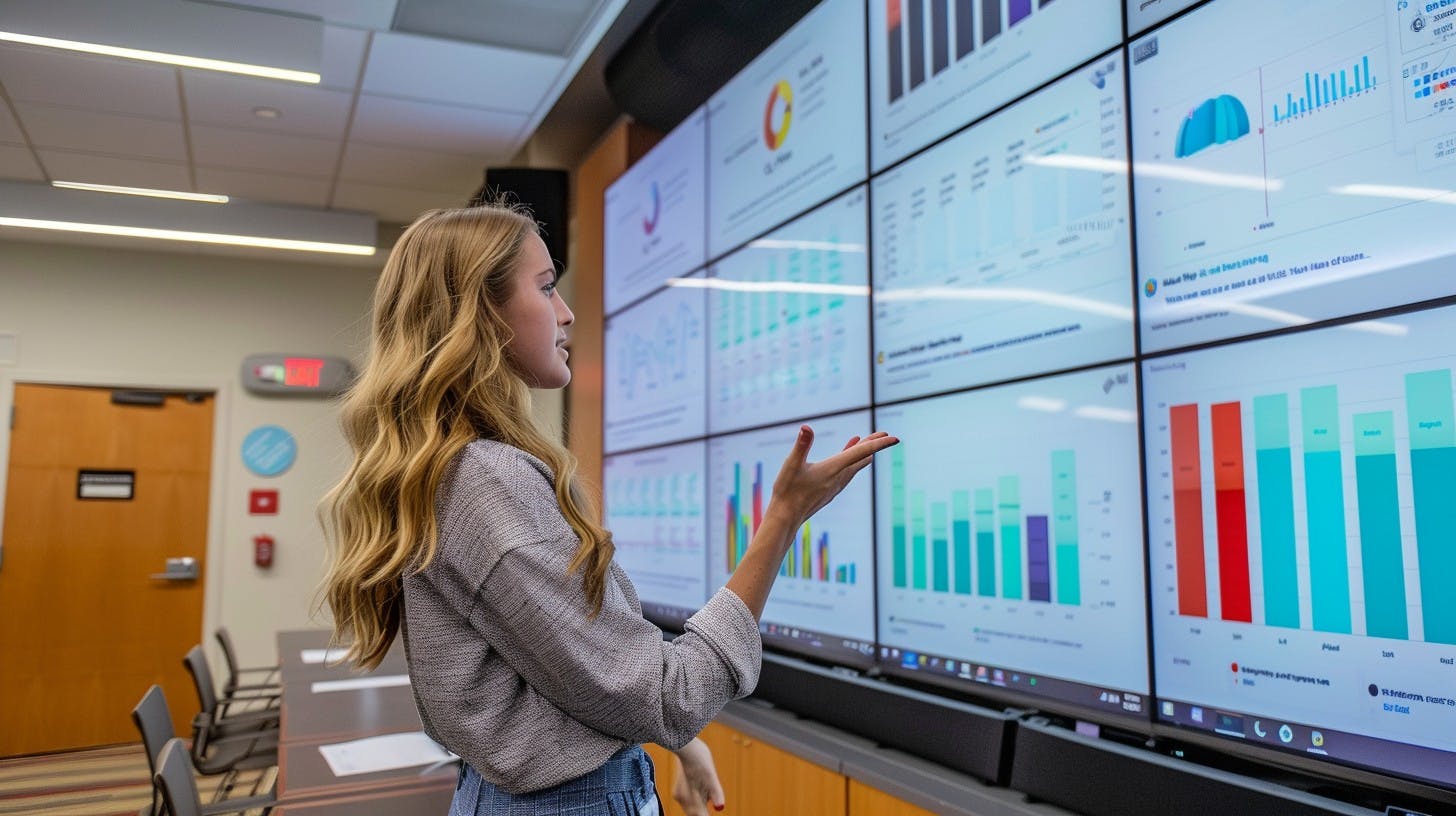
Ultimate Guide to AI in Email Marketing Automation
Intelligent Personalized Email Content
September 6, 2024
Let's Jump Right In
The email marketing landscape is going through a rapid transformation with the widespread adoption of AI technologies, especially generative AI. There has been a significant increase in search volumes for "generative AI," reflecting the growing interest in AI-powered content creation and campaign management. As of current statistics, almost one-third of marketing departments have integrated AI tools into their workflow.
These AI-powered email marketing tools are revolutionizing strategies by providing personalized content, predicting user engagement, and optimizing the timing of email sends. This marks a significant shift in the industry, with email marketing positioned at the forefront of the AI revolution.
AI in Email Marketing
Adoption and Trends
The adoption of AI is on the rise, with approximately one-third of marketing teams already making use of generative AI tools. These advancements align particularly well with the needs of email marketing, including the requirement for personalized content, improved efficiency, and insights driven by data analytics.
However, despite the potential benefits, some marketers may be hesitant to embrace AI due to a lack of familiarity with the technology and concerns about its capabilities.
How AI is Changing Email Marketing
1. Campaign Management and Analysis
AI's data processing abilities enhance campaign management by providing real-time insights, predictive analysis, and automated optimization. AI tools help identify trends and patterns in subscriber behavior, allowing for more effective decision-making.
Benefits:
- Real-time reporting
- Predictive outcome analysis
- Automated testing and optimization
2. Content Creation
Generative AI assists in creating engaging and on-brand email content. By analyzing historical performance, AI can generate personalized emails and subject lines that optimize open rates. It also suggests images that complement email content, enhancing overall engagement.
Use Cases:
- Automated email copy generation
- Subject line optimization
- Personalized content recommendations
3. Brainstorming and Ideation
AI assists in generating ideas for email subject lines, newsletter topics, and campaign themes by analyzing trends and subscriber interests. This assists marketers in remaining relevant and engaging.
Applications:
- Subject line generation based on engagement data
- Topic suggestions based on trends
- Cross-selling and upselling recommendations
4. Scale and Efficiency
AI automates tasks such as brainstorming, content creation, and analysis, freeing up marketers to concentrate on strategy and creativity. This results in more frequent and targeted email communications without compromising quality.
Efficiency Gains:
- Automated workflow management
- Rapid content creation
- Enhanced team productivity
Best Practices for Using AI in Email Marketing

1. Define Your Objectives
Clearly define your goals, such as improving open rates, increasing conversions, or enhancing personalization. This will direct your AI strategy and aid in measuring success.
2. Data Quality and Privacy
Ensure your data is accurate, up-to-date, and compliant with privacy regulations. This is crucial for the effectiveness of AI tools in email marketing.
3. Combine AI with Human Creativity
While AI can automate many aspects of email marketing, human creativity remains essential. Use AI to enhance, not replace, human input.
4. Test and Optimize Continuously
Foster a culture of continuous testing and optimization. Regularly review AI-driven elements in your campaigns and adjust your approach based on the results.
5. Maintain Brand Voice and Authenticity
Ensure that your brand voice remains consistent when using AI for content creation. Review AI-generated content to align with your brand and incorporate a personal touch.
Examples of AI in Email Marketing Action
E-commerce Retailer Increases Conversions: An e-commerce retailer utilized AI to personalize product recommendations and optimize sending times. The AI analyzed customer behavior to create targeted campaigns, thus increasing open and click-through rates.
Results:
- 35% increase in open rates
- 50% increase in click-through rates
- 28% conversion rate from email campaigns
B2B Software Company Nurtures Leads: A B2B software company utilized artificial intelligence to enhance its lead nurturing sequences. By analyzing prospect behavior and engagement data, the company was able to dynamically personalize content for each lead based on their specific requirements and interests.
Results:
- 40% reduction in the sales cycle
- 25% increase in qualified leads
- 30% increase in email engagement
Challenges and Considerations
1. Data Privacy and Security
AI's reliance on customer data requires strict privacy and security measures. Marketers must adhere to regulations such as GDPR and CCPA.
2. Over-Automation
Avoid relying too much on AI for content generation. Maintain authenticity by balancing automation with human oversight.
3. Algorithmic Bias
Be mindful of potential biases in AI models. Take steps to identify and address bias in your campaigns.
4. Integration with Existing Tech
Ensure that AI tools seamlessly integrate with your existing marketing tech stack for smooth data flow and compatibility.
5. Skill Gap and Training
Invest in training your team on AI technologies to enhance their effectiveness and keep up with advancing AI capabilities.
The Future of AI in Email Marketing
AI in email marketing is set for substantial growth. Emerging trends include hyperpersonalization, predictive analytics, and advanced natural language processing. As AI continues to evolve, it will enable more sophisticated and personalized email experiences and integrate more deeply with other digital channels. Ethical AI frameworks will also become more common, guiding the responsible use of AI in email marketing.
Conclusion
The revolution of AI in email marketing is already well underway, with a wide range of opportunities for marketers to take advantage of. From enhanced personalization to increased efficiency and data-driven insights, AI has the potential to transform the way email campaigns are conducted. By thoughtfully and strategically integrating AI into their marketing efforts, marketers have the opportunity to significantly improve customer engagement, optimize performance, and achieve a better return on investment (ROI) in their email campaigns.
However, the key to success lies in achieving a balance between AI's capabilities and human creativity, as well as adhering to ethical standards and continually adapting to changing customer expectations. By embracing AI as a valuable tool to enhance their email marketing strategies, marketers can position themselves for success in the fast-evolving digital landscape of tomorrow.



